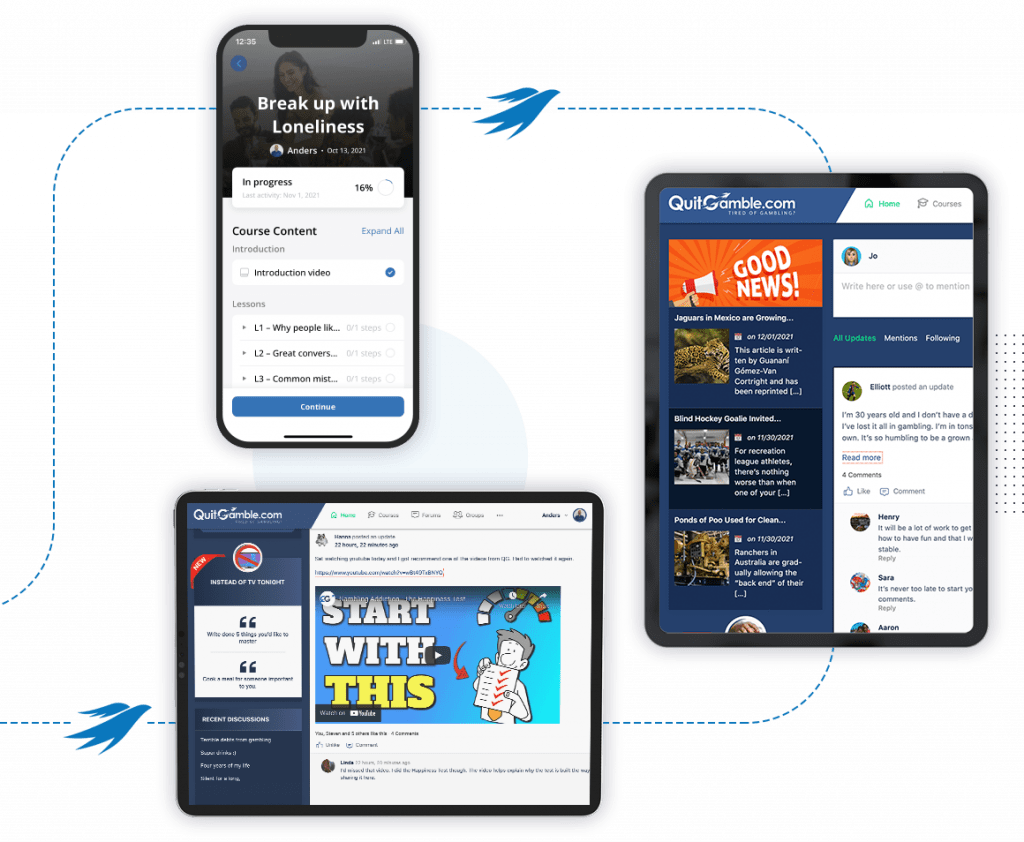How to stop Gambling Pennsylvania
Seeking help for gambling addiction in Pennsylvania – Let’s help you stand on your own two feet with this guide.
- Tips to stop gambling Pennsylvania
- Gambling support PA
- Ideas, Trix and Self-Exclusion
If you live in any other US state,
select a state to find your state guide.
Select a State
Let’s Get Started
This guide explains why gambling is so attractive to you and outlines steps to reduce exposure to things that trigger the urge to gamble.
To begin, ask yourself: What is gambling doing for me? Does it create a moment of peace or a period when nothing else matters? These questions can give some insight into why quitting may be difficult. After this, sign up for the free Change Plan course to get started. It’s also recommended to do the Happiness Test. Additionally, join the QG Community for a free account for further support.
The next step is to limit your exposure to gambling triggers. To do this, here are four actions you can take:
- Switch your email address – if you’ve ever signed up for anything online, there is a big risk your email has been sold to a casino.
- Switch your cellphone number – like with your email address; casinos will text or call you if you have given them your phone number.
- Switch to streaming services – avoid watching TV channels with gambling commercials.
- Download and install Gamban – if you’re gambling online, this app helps block access to websites and gambling-related apps.
By following these steps, you can remove any lingering connections to gambling and make progress on becoming gambling-free.
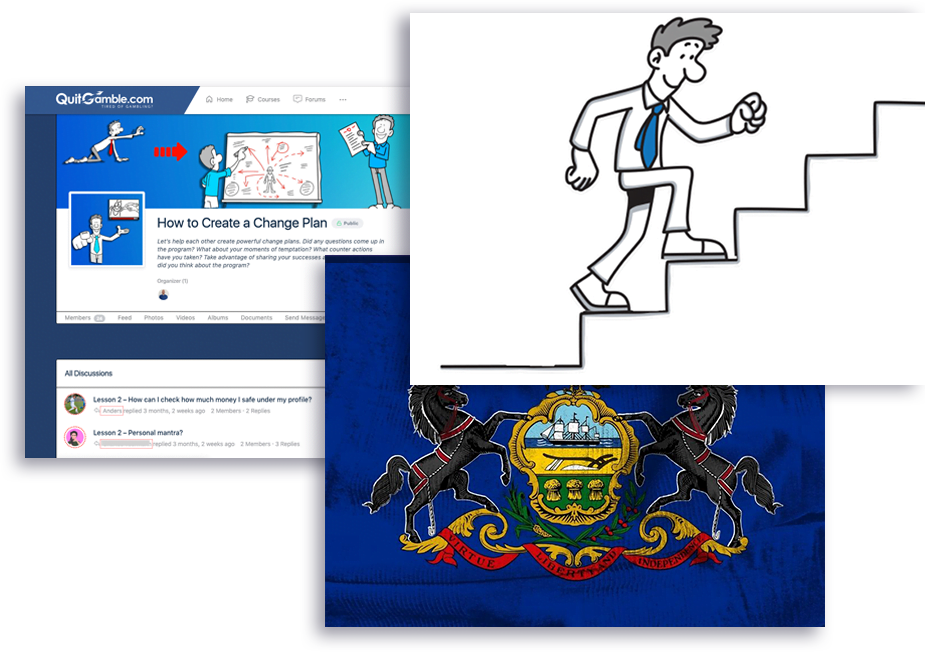
How to decrease your exposure to gambling ads?
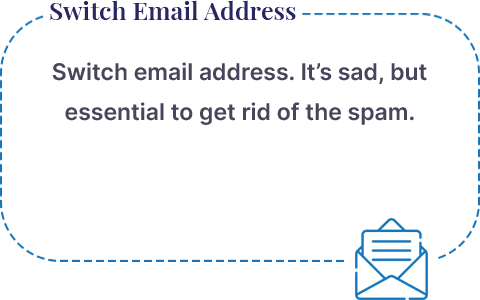
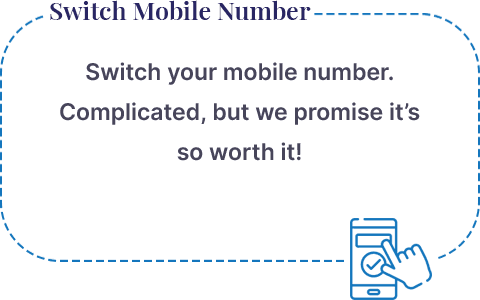

Gambling Support In Pennsylvania
As a compulsive gambler in Pennsylvania, here are some more resources that can be helpful.
- QuitGamble.com (We challenge you to challenge yourself)
- Gambler’s Anonymous Pennsylvania (Classic 12-steps, or read QG vs. GA)
- Council on Compulsive Gambling of Pennsylvania
- Suicidal thoughts? Please call: National Suicide Prevention Hotline at 1-800-273-8255
Pennsylvania offers many resources and services to help people struggling with problem gambling. An extensive network of organizations is working together to provide public awareness, treatment options, and support for individuals, family members, and communities affected by problem gambling.
The Pennsylvania Gaming Control Board provides multiple programs aimed at helping those suffering from compulsive or problem gambling behaviors. Council on Compulsive Gambling of Pennsylvania works to provide prevention, education, relationship building, referral-based counseling, and case management services for individuals in need. The toll-free helpline 1-800-GAMBLER also offers 24/7 assistance when needed.
Gamblers Anonymous PA holds weekly meetings throughout the state where recovering gamblers can connect with other like-minded individuals who have had similar struggles. Through sharing their stories, they can find strength in one another and learn how to cope with their addiction in healthier ways. GA also runs a mentor program that helps new members transition into recovery more efficiently by providing helpful advice based on personal experience and support over time. It’s important to remember that many options are available for those seeking help with problem gambling issues in Pennsylvania – ranging from professional counseling to support groups such as Gamblers Anonymous Philadelphia – so it’s worth exploring all avenues before deciding which path best suits your needs. Suppose you’re gambling in Pennsylvania and want to quit. In that case, neighboring states such as Delaware, Maryland, New Jersey, New York, Ohio, and West Virginia have resources for problem gambling that you can contact for help.
QuitGamble.com – Online Gambling Support
QuitGamble.com is an online platform designed to help people with a gambling addiction break their habits for good. It is the world’s first social network aimed explicitly at problem gamblers, providing access to 24/7 support and gambling resources that allow users to work on the underlying causes of their addictions. The services available on QuitGamble.com include:
- A members’ platform with more than 3400 members from over 120 countries
- Animated video courses and extensive guides
- Forum, support groups, emails, and chat
- A mobile app
QuitGamble.com aims to provide users with the tools they need to beat their addiction in their own time without paying for any of the services. By joining this community, individuals can find others going through a similar experience and gain additional support. Users also benefit from being part of a global platform that allows them to share stories, tips, and motivation with members worldwide. With QuitGamble.com, no one needs to face their struggles with gambling alone – there is always someone to turn to when it feels like nobody understands. Join today, and let’s kick addiction’s ass!
Let’s Kick Addiction’s Ass!
Council On Compulsive Gambling Of Pennsylvania
The Council on Compulsive Gambling of Pennsylvania (CCGP) is a nonprofit organization affiliated with the National Council on Problem Gambling. It assists individuals in Pennsylvania who are seeking help for gambling-related problems. Through their 24/7, free, and confidential Helpline, CCGP refers all callers to the closest resources, such as locally trained clinicians or nearby Gamblers Anonymous or Gam-Anon meetings.
In addition, CCGP offers many programs to spread awareness about problem gambling:
- Speakers, workshops, and seminars to business, industry and labor groups, schools and colleges, health care and treatment facilities, and community and religious organizations.
- A three-year state-paid Prevention Program called “Smart Choices” addresses Prevention for Adolescent Problem Gambling.
- Since February 2007, they have operated a live clinical referral center.
- Thousands of PA therapists have completed their 30-hour Level #1 clinical training.
- Hundreds of PA therapists have completed their 30-hour Level #2 course.
Through these initiatives, CCGP strives to educate and inform the public about compulsive gambling and facilitate referrals to help those affected by this public health issue.
Gamblers Anonymous Pennsylvania
Gamblers Anonymous Pennsylvania is a support group dedicated to helping individuals struggling with problem gambling. The organization provides a safe and supportive place for members to share their experiences, learn about the warning signs of addiction, and receive guidance on how to stop gambling. Gambling Anonymous in PA offers weekly meetings throughout the state where members can meet face-to-face, discuss their struggles, and provide emotional support.
Additionally, Gamblers Anonymous Pennsylvania hosts an online forum where those seeking help from problem gambling can ask questions anonymously or read recovery-related articles.
Gambling Anonymous in PA also provides educational material that helps people understand why they have developed a gambling addiction and how it affects them mentally and physically. This information is critical for individuals who may not know what triggers their addictive behavior or how to break free.
Gamblers Anonymous Pennsylvania’s mission is clear: To give those suffering from problem gambling a chance at becoming healthier versions of themselves through education and compassionate support systems. Whether you need help immediately or want someone who understands your experience, this organization has exactly what you need!
Self-Exclusion In Pennsylvania
Gambling addiction is a serious issue that can have damaging repercussions for both individuals and society. Pennsylvania has no casino self-exclusion program to help people with gambling addictions avoid their triggers. Here are five tips to assist those struggling with gambling addiction in the state:
- Investigate alternative compulsive gambling prevention programs available in other US states.
- Self-ban from casinos or other gambling places you most often visit.
- Take a friend along to ensure you stay away from gambling activities.
- Seek support from family and friends who understand your struggles.
- Utilize online resources such as hotlines and counseling services.
Although Pennsylvania does not have a statewide self-exclusion program, these measures can help individuals cope with their gambling addiction and find healthier ways of dealing with their compulsions. With the right approach, they can reclaim control over their life and reduce the harm caused by their addiction.
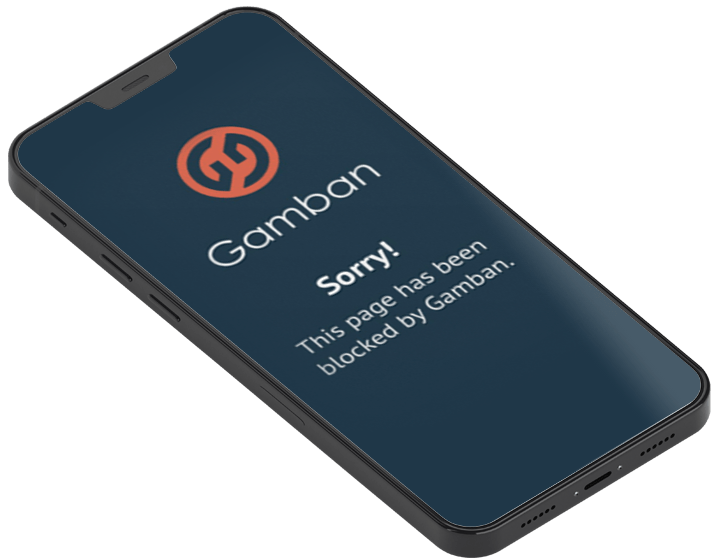
Do You Gamble Online In Pennsylvania?
Self-exclusion from online casinos in Pennsylvania is not an option. However, there is an alternative. One alternative is using apps like Gamban and Betblocker, designed to block access to gambling sites. Emphasizing this point, here are three advantages of using these apps:
- Easy to install on phones and desktops
- Blocks access to all gambling-related websites with a message saying they are blocked
- Difficult to uninstall until the subscription runs out
In conclusion, apps like Gamban or Betblocker can provide users with an effective way to block themselves from online gambling sites in Pennsylvania.
Help A Gambling Addict In Pennsylvania
Gambling addiction has become a significant issue in many lives, affecting both gamblers and their relatives. It’s estimated that for every compulsive gambler, there is at least one relative who may suffer from co-dependency due to adjusting themselves to the behavior of the addict in their life. QuitGamble.com supports such people with forums and chats where they can ask questions to other relatives, ex-compulsive gamblers, or even co-dependants.
If you find yourself in this situation, we recommend looking at the guide “21 Ways to Protect Yourself From a Gambling Spouse,” which will provide helpful tools for dealing with the gambling addict. Here are five important points mentioned in the guide:
- Interesting Gambling Statistic: 2-6% of Americans have some level of gambling disorder.
- Learn to Speak Up: You must communicate your feelings without fear or judgment.
- See the Signs: Knowing what to look for can help you spot any problem areas before they escalate.
- Prevent Co-Dependence: Don’t let the person’s behavior influence yours.
- Nonviolent Communication: Use effective communication skills when speaking with them about the issue.
- Action Plan: Develop an action plan to manage the situation.
We understand how tough this situation can be, but by using these tips, you can become a hero and make a difference.
The first step to helping a gambling addict in Pennsylvania is identifying the problem. If someone you know exhibits signs of compulsive gambling, it’s important to intervene immediately. Signs may include spending more money than they can afford on gambling activities, lying or stealing money from family members and friends, feeling anxious and depressed after losses, or having difficulty managing their daily responsibilities due to excessive gaming.
Pennsylvania has resources available for those struggling with a gambling addiction. The PA Council on Compulsive Gambling provides 24-hour counseling and referral services through its helpline (1-800-GAMBLER). In addition, many counties have local organizations that offer support groups for people dealing with compulsive behavior and debt related to gambling. These organizations provide education about the warning signs of problem gambling and increase public awareness about responsible gaming practices.
For those seeking professional help, certified counselors specialize in treating individuals with a history of problematic behaviors associated with betting and wagering activities. Through one-on-one sessions and group therapy programs, these specialists work with clients to address underlying issues contributing to their destructive habits while providing them with practical tools needed to manage their urges and break free from negative cycles associated with their addiction.
Let’s stop Gambling Pennsylvania
We recommend you reach out for help if you or someone you know is struggling with a gambling addiction. There are many resources available, both online and offline, that can provide support for those looking to break free from the cycle of problem gambling. You don’t have to suffer alone; some people want to help and ensure you get back on track.
Take control of your life today by recognizing the signs of an unhealthy relationship with gambling and seeking professional assistance. With knowledge, courage, and determination, it’s possible to overcome the grip of compulsive gambling in Pennsylvania before it takes over your life.
 English
English Español
Español Français
Français Português
Português Svenska
Svenska